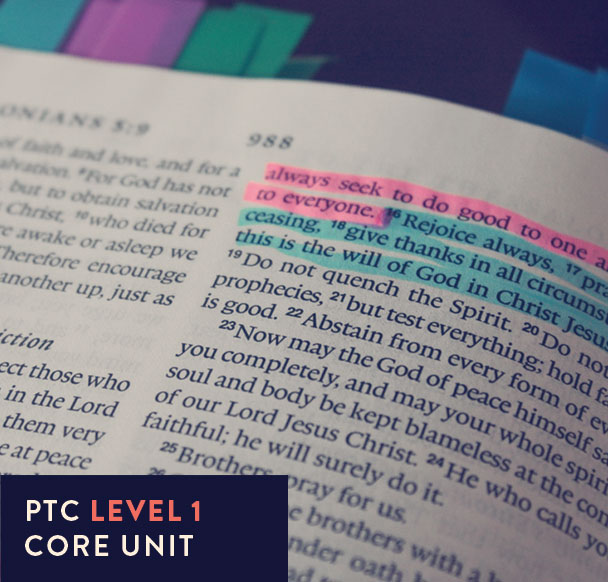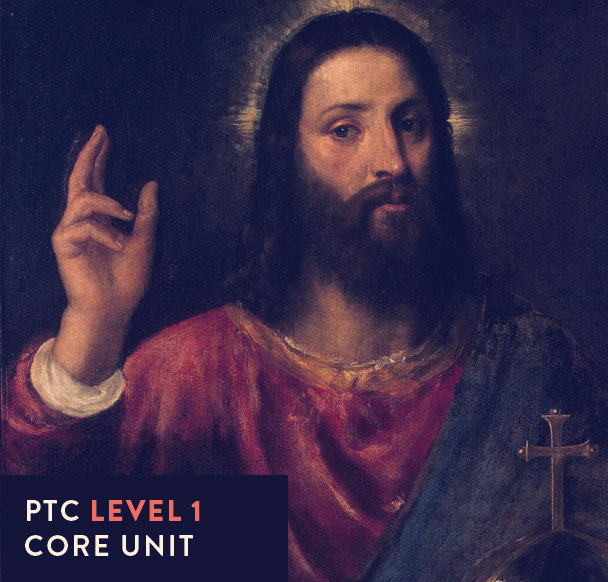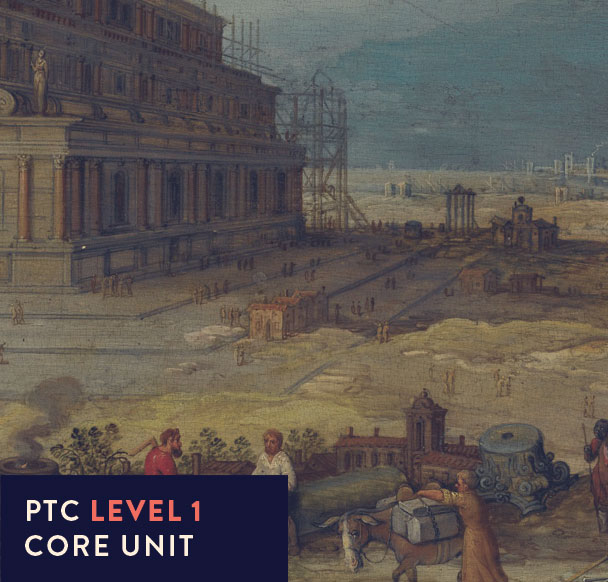
Introduction to the Bible shows how the great themes of the Bible fit together into one story that spans both the Old and New Testaments. At the centre of the story is of course Jesus and this unit shows how God plan to redeem his people, which begins with promises to Abraham and continues through the fortunes of the nation of Israel, reaches its climax at the cross.

Promise to Fulfilment focuses on training students in a method for reading the Bible well, paying particular attention to placing each interpreting each passage of the Bible in light of its place in the single overarching story that binds the Bible together as a whole. The passages chosen for particular attention represent a range of different genres and each come at a key stage in God’s unfolding plan of redemption.

Pentateuch (Old Testament 1) covers the first five books of the Old Testament, examining some of the foundational events in the Bible such as creation, the fall, the promises to Abraham, exodus from Egypt and the giving of the Law. The great themes of sin, covenant, redemption, sacrifice and blessing all emerge from this examination and the subject shows how these point forward to the work of Christ.

This study of Mark (New Testament 1) takes a systematic approach to reading through the Gospel of Mark, in the process answering the two central questions that Mark poses to his readers: ‘Who is Jesus?’ and ‘What did Jesus come to do?’. Attention is paid to locating the identity and work of Jesus in the context of the Old Testament expectations of the Messiah and showing how Jesus fulfils those expectations.

Knowledge of God (Doctrine 1) focuses on what we can know about God based on what he has revealed of himself to us in Scripture. An important part of this subject is examining the nature and authority of Scripture itself, in which the concept of covenant is central. In addition to examining God’s sovereignty, power and Trinitarian nature, the subject also looks at the ideas of repentance, salvation and judgement.

This study of Ephesians systematically works through Paul’s letter to the Ephesians, showing that God’s intention is to unify all things in Christ. While we wait for this intention to be completely fulfilled, God has already provided a living demonstration of this unity in the church, in which the fundamental distinction between Jew and Gentile has now been overcome. The subject unpacks the implications of this ne unity for individuals, the church and the whole creation.